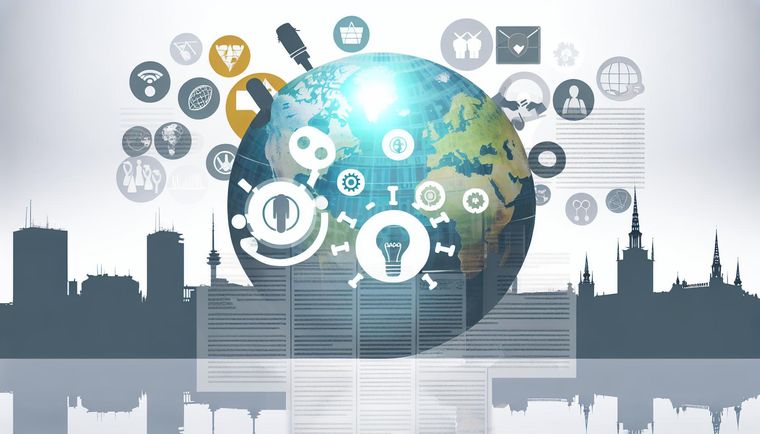Global Insights and Innovations from the IUFRO World Congress in Stockholm

At the end of June 2024, the IUFRO World Congress—the major international fair for the forestry industry—was held in Stockholm, gathering 4,300 researchers, representatives from authorities, organizations, and companies over a week-long event focused on sharing insights and experiences within the industry. Despite having up to twenty lectures running simultaneously at times, attendance remained robust. Notably, the next congress is set for 2029 in Kenya, highlighting the significance and infrequency of such gatherings.
One of the critical themes discussed was the importance of international exchange in the field of forestry research, which was prominently supported by the Royal Golden Eagle (RGE). Researchers at the fair shared their findings openly, underscoring a collaborative spirit. For instance, insights from KTH researchers on pulp and paper technology could be augmented by Canadian studies on wildfires, which in turn contribute vital comparative data for carbon storage research in Indonesian wetlands.
Amidst the diverse research presented, Chandru S. Deshmukh, a prominent lecturer at the congress, highlighted critical areas of his research funded by APRIL Group—part of the Singapore-based RGE. He pointed out that Indonesia, with its rapidly growing population, faces increasing demands for land and resources. Investing in scientific research in developing nations like Indonesia not only addresses local needs but also enhances global scientific understanding. Deshmukh's research gained international recognition, providing novel insights for decision-makers worldwide. His findings aim to refine estimates of greenhouse gas emissions, explore the effects of land use changes on tropical wetlands, and promote science-based strategies for wetland management as nature-based climate solutions.
Deshmukh emphasized a crucial point: it is not always the best approach to leave forests untouched. Establishing plantation forests on drained wetlands can significantly decrease long-term greenhouse gas emissions while dramatically lowering wildfire risks. Moreover, utilizing tree biomass for bioenergy presents an alternative to fossil fuel dependency, promoting a more sustainable future.
Conducting research in the challenging environment of Indonesian wetlands, Deshmukh described his efforts to set up three steel towers, each over 40 meters high, supported by foundations 30 meters deep. These installations often attracted lightning strikes that damaged sensitive instruments, requiring relentless maintenance by a dedicated technical team. The extreme conditions—intense heat, an abundance of insects, and encounters with formidable wildlife such as tigers and snakes—further complicated the endeavor.
The research methods employed, notably the eddy covariance technique, were meticulously chosen for their accuracy and minimal disturbance to the natural ecosystem. Although eddy covariance involves high-quality measurement apparatus and precise data processing, it offers invaluable insights into the exchanges of gases and energy between the ground and the atmosphere.
Eddy covariance works by capturing fast-changing wind and gas content in the atmosphere, allowing researchers to calculate gas and energy flows in various settings, including forests, lakes, oceans, and agricultural land. This method is vital in understanding the effects of climate change and the interplay between ecosystems and atmospheric processes.
Deshmukh firmly believes that reinforcing the understanding of climate change is critical for future decision-making. "What we cannot measure, we can never comprehend," he asserts, underscoring the urgent need for up-to-date research in combating the challenges posed by climate change.
Exploration of the RGE Group reveals their dedication to sustainability. APRIL Group, one of the world's largest pulp and paper manufacturers, operates under the umbrella of RGE, which employs over 80,000 individuals globally. The company focuses on innovative technology and scientific applications to foster the bioeconomy, promoting sustainable cycles of biobased product usage. Their operations in Riau province, Sumatra, utilize lean manufacturing principles, ensuring efficient energy and water usage while minimizing emissions. Their brand, PaperOne, is made from 100 percent renewable fiber, sold in more than 110 countries, reflecting their commitment to environmental sustainability and responsible resource management.
Through events like the IUFRO World Congress, the forestry industry's commitment to sustainable development and climate action is both evidenced and enhanced. These occasions not only facilitate knowledge exchange but underscore the vital role of collaborative research in addressing global environmental challenges.
Related Sources:
• Source 1 • Source 2 • Source 3 • Source 4 • Source 5 • Source 6
